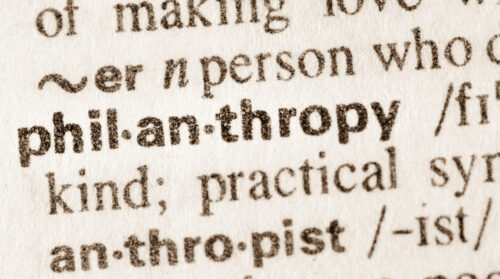Giving wisely takes work, but these resources can help you take control of your giving journey.
There are few things simultaneously more frustrating and endearing than a toddler’s “why” stage. Each “why” is that toddler trying to discover more about their world, and it’s just as important for donors to ask “why” questions as they explore philanthropy. Effective giving takes effort, from speaking with philanthropy advisors, family members, and wealth advisors to conducting your own research. Here are a few resources—all free—that can help, allowing you to direct all your spending to your next gift.
The Philanthropy Toolkit: An Introduction to Giving Effectively, from the Stanford Center on Philanthropy and Civil Society, was published in 2020 and is available here. This comprehensive toolkit covers everything from finding your focus areas to vetting organizations to tracking your giving. It also features helpful worksheets for each section that are also available as excerpts. For example, this activity packet provides an engaging method for donors to identify and rank personal values, like patriotism, unity, or stewardship, by answering questions designed to get at the heart of your motivation to give, using a word list, or using flashcards to rank personal values. Performing these activities as an individual donor or together as a family is a wonderful way to determine what matters most to you.
If you are looking for something more concise, AmPhil’s The Little Book on Giving Well is a great option. This compact guide walks you through eight questions designed to help you define your personal giving objectives, find reliable information about potential grantees, and form reasonable expectations about the giving process. AmPhil emphasizes that philanthropy is “relational, not transactional,” and that the wisest giving decisions reflect this principle. The book and an accompanying webinar are available for download here.
The basic principles of effective giving remain the same whether you’re donating to the fine arts or to medical research. However, each type of giving comes with specific challenges. If you regularly give to higher education or are interested in pursuing giving to a college or university, my organization, the Fund for Academic Renewal, just released a short resource entitled “Ten Questions Before You Give” as a companion piece to The Intelligent Donor’s Guide to College Giving. Both are available for download here.
Giving wisely can seem daunting, but it does not have to be. While there are thousands of resources, like this article itself, telling donors whom to give to, whom not to give to, and exactly how to give, the final decision is up to you. Your giving does not have to look just like everyone else’s. These three resources can help you take control of your giving journey and make a difference in the way only you can.






